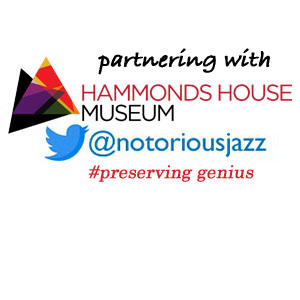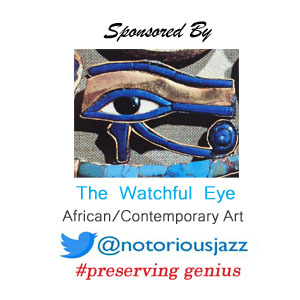
The Quarantined Jazz Voyager
The masks the President promised are out however, he has given all the manufacturers an opportunity to participate. You only get two or three N95’s depending on where you get them. So if your Amazon order is slow to come stop by your local pharmacy and pick up yours. Continue social distancing and remain safe.
This week sliding off the shelves in alto saxophonist Jackie McLean and his 1963 album Destination… Out! The album was recorded on September 20, 1963, produced by Alfred Lion and released in November of the following year on the Blue Note label. It is the second McLean album to feature Bobby Hutcherson and Grachan Moncur III.
He’s 31 years of age and primed torecord an album for the ages. Hard bop aside he ventured into free jazz on this one to explore new sounds and improvisation never heard before. Four tunes make up this release, three by Moncur and one by the leader, who recognized the former’s penchant for composition.
Growth mandates that we expand our personal listening repertoire, that we stray from our comfort zone, and explore the options jazz offers. Needless to say McLean has put together a stellar band of musicians who engage us with the conversation they fluidly and freely have along its journey.
Track Listing | 34:57
- Love and Hate (Grachan Moncur III) ~ 8:25
- Esoteric (Moncur) ~ 9:02
- Kahlil the Prophet (Jackie McLean) ~ 10:23
- Riff Raff (Moncur) ~ 7:07
- Jackie McLean ~ alto saxophone
- Grachan Moncur III ~ trombone
- Bobby Hutcherson ~ vibes
- Larry Ridley ~ bass
- Roy Haynes ~ drums
More Posts: adventure,album,club,genius,jazz,museum,music,preserving,restaurant,saxophone,travel
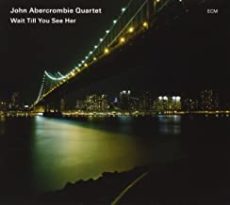
Daily Dose Of Jazz…
John Laird Abercrombie was born in Port Chester, New York on December 16, 1944. Growing up in the 1950s in Greenwich, Connecticut he was attracted to the rock and roll of Chuck Berry, Elvis Presley, Fats Domino, and Bill Haley and the Comets. He also liked the sound of jazz guitarist Mickey Baker of the vocal duo Mickey and Silvia. He had two friends who were musicians with a large jazz collection and they listened to albums by Dave Brubeck and Miles Davis.
The first jazz guitar album he heard was by Barney Kessel, and taking guitar lessons at the age of ten, asked his teacher to show him what Kessel was playing. After high school, John went to Berklee College of Music and while there he was drawn to the music of Jim Hall, Sonny Rollins, and Wes Montgomery. He cites George Benson and Pat Martino as inspirations. His playing around Boston, Massachusetts led to his meeting the Brecker Brothers and organist Johnny Hammond Smith, who invited him to go on tour.
From Berklee in 1967 to North Texas State University to a move to New York City in 1969 where he became a popular session musician. He joined the Brecker Brothers in the jazz-rock fusion band Dreams, followed by recordings with Gato Barbieri, Barry Miles, and Gil Evans. He continued to play fusion in Billy Cobham’s band until an invitation from drummer Jack DeJohnette led to the fulfillment of Abercrombie’s desire to play in a jazz-oriented ensemble.
Around the same time, record producer Manfred Eicher, founder and president of ECM Records, invited him to record an album. He recorded his first solo album, Timeless, with DeJohnette and keyboardist Jan Hammer. who had been his roommate in the 1960s. In 1975 he formed the band Gateway with DeJohnette and bassist Dave Holland.
Between 1984 and 1990, Abercrombie experimented with a guitar synthesizer. Free jaz became a mainstay for him in the 1990s and 2000s as he formed many new associations. Drummer Adam Nussbaum, and Hammond organist Jeff Palmer became his trio and made a free-jazz album, then replaced Palmer with organist Dan Wall and released three albums between 1992 and 1997. Adding trumpeter Kenny Wheeler, violinist Mark Feldman and saxophonist Joe Lovano to the trio he recorded Open Land in 1999.).
He continued to tour and record until the end of his life. who recorded 59 as a leader, 4 with Gateway, 6 with Andy LaVerne and 93 as a sideman for the who’s who in jazz. Guitarist John Abercrombie, whose work explored jazz fusion, free jazz, and avant-garde jazz, passed away of heart failure in Cortlandt Manor, New York, at the age of 72 on August 22, 2017.
More Posts: bandleader,composer,guitar,history,instrumental,jazz,music
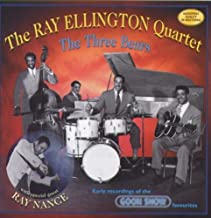
Daily Dose Of Jazz…
George Coleridge Emerson Goode was born on November 29, 1914 in Kingston, Jamaica. His father was a choirmaster and organist and his mother sang in the choir. Moving to Britain in 1934, the 19-year-old student at the Royal Technical College in Glasgow, Scotland and then went on to read for a degree in engineering at Glasgow University. Already proficient as an amateur classical violinist he turned to jazz and took up the bass after hearing the music of Count Basie, Duke Ellington, Billie Holiday and Louis Jordan and decided to embark upon a musical career.
His primary early influences as a bassist were Walter Page, Slam Stewart and Jimmy Blanton. In London during World War II, Coleridge worked with Johnny Claes, Eric Winstone, Lauderic Caton, Dick Katz, became a founder member of the Ray Ellington Quartet and recorded with Django Reinhardt in 1946, alongside Stephane Grappelli. He went on to play with Tito Burns’ sextet and led his own group, before being invited to join Joe Harriott’s new band in 1958.
By 1967 he was recording with Chris McGregor, Dudu Pukwana, Ronnie Beer, and Laurie Allan on Gwigwi Mrwebi’s Mbaqanga Songs. Through the decade and into the 1970s, Goode worked extensively with pianist/composer Michael Garrick, while performing in the house band at Laurie Morgan’s Sunday jam session into his 90s.
In 2002, he published his autobiography Bass Lines: A Life in Jazz, which chronicled the birth of free form jazz in Britain. He was honoured with the Services to Jazz Award at the Parliamentary Jazz Awards, and at the age of 100, double bassist Coleridge Goode passed away on October 2, 2015.
More Posts: bass,history,instrumental,jazz,music
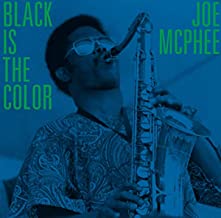
Daily Dose Of Jazz…
Joe McPhee was born November 3, 1939 in Miami, Florida and grew up in Poughkeepsie, New York. He began playing trumpet when he was eight, before learning other instruments. He played in various high school and then military bands before starting his recording career. His first recording came in 1967 when he appeared on the Clifford Thornton album titled Freedom and Unity.
McPhee taught himself saxophone at the age of 32 after experiencing the music of John Coltrane, Albert Ayler, and Ornette Coleman. During the late 1960s and early 1970s, he lectured on jazz music at Vassar College.
In 1975, Werner Uehlinger started the Swiss label Hathut Records with the specific intent of showcasing McPhee’s music. In the 1980s, he met Pauline Oliveros, began studying her musical theories, and worked with her Deep Listening Band.
Not having been signed with any major label in his native United States, Joe was better known throughout Europe until the 1990s. His 1996 album As Serious As Your Life, which takes its title from the jazz book by Val Wilmer, has been said to arguably be the finest of his solo recordings, according to the AllMusic review.
He has recorded or performed with Ken Vandermark, Peter Brötzmann, Evan Parker, Mats Gustafsson, Jeb Bishop, The Thing, Clifton Hyde, Jérôme Bourdellon, Raymond Boni, and Joe Giardullo. Since 1998, he, Dominic Duval, and Jay Rosen have performed and recorded as Trio X. In the 1990s Dominique Eade and McPhee had a jazz ensemble called Naima.
He has written reviews and commentary for Cadence magazine and was awarded the Resounding Vision Award by Nameless Sound. Multi-instrumentalist Joe McPhee, who plays tenor, alto, and soprano saxophone, trumpet, flugelhorn and valve trombone, is most notable for his free jazz work done from the late 1960s to the present day.
More Posts: bandleader,flugelhorn,history,instrumental,jazz,music,saxophone,trumpet,valve trombone
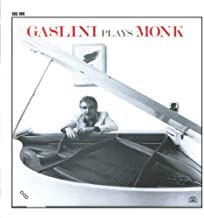
Daily Dose Of Jazz…
Giorgio Gaslini born October 22, 1929 in Milan, Italy. He began performing aged 13 and recorded with his jazz trio at 16. In the 1950s and 1960s, He performed with his own quartet. He was the first Italian musician mentioned as a “new talent” in the Down Beat poll and the first Italian officially invited to a jazz festival in the USA New Orleans 1976-77.
He collaborated with leading American soloists, such as Anthony Braxton, Steve Lacy, Don Cherry, Roswell Rudd, Max Roach, but also with the Argentinian Gato Barbieri and Frenchman Jean-Luc Ponty. He also adapted the compositions of Albert Ayler and Sun Ra for solo piano, which the Soul Note label issued. He also composed the soundtrack of Michelangelo Antonioni’s 1961 La notte (The Night).
From 1991 to 1995, Gaslini composed works for Carlo Actis Dato’s Italian Instabile Orchestra, and was the first to teach jazz courses at the Santa Cecilia Academy of Music in Rome in 1972. In the Seventies he scored ten films between 1970 to 1977.
Pianist, composer and conductor Giorgio Gaslini, who composed symphonic works, operas, and ballets, passed away on July 29, 2014 at 84 in Borgo Val di Taro, Italy in the province of Parma.
More Posts: bandleader,composer,conductor,history,instrumental,jazz,music,piano



